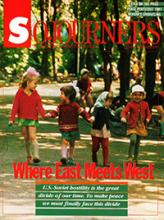Recent Western press coverage of post-Chernobyl demonstrations in Eastern Europe against nuclear power and state secrecy has once again drawn attention to one of the most exciting developments of the 1980s in the Soviet bloc--the emergence of independent citizens' peace and ecology movements and a widening discussion about disarmament and militarism among the civil rights movements launched in the 1960s and 1970s.
Although the human rights and other social movements in each of the East European countries are very different in nature, they all have in common a desire to reclaim from the state what is called "civil society" in the language of these countries, or what we might call "public life" or "community activism" in the United States. By this is meant a space where independent discussion and criticism can grow, where an alternative to the state's monopoly on information and education can thrive, where an effort can be made to restrain the state's arbitrary or arrogant use of power against its own citizens or other countries, and, finally, where the rigidity and isolation of the bloc mentality can be challenged. Activists in Eastern Europe have described this process as restoring the citizens as a subject of history, rather than as an object controlled by the state.
This struggle has had greater or lesser success, depending on the country. But in all of the Soviet bloc states, independent peace and human rights activity has been met with harsh retaliation from the security forces, which regard any unofficial citizens' initiatives as a challenge to their authority and power.
Read the Full Article

